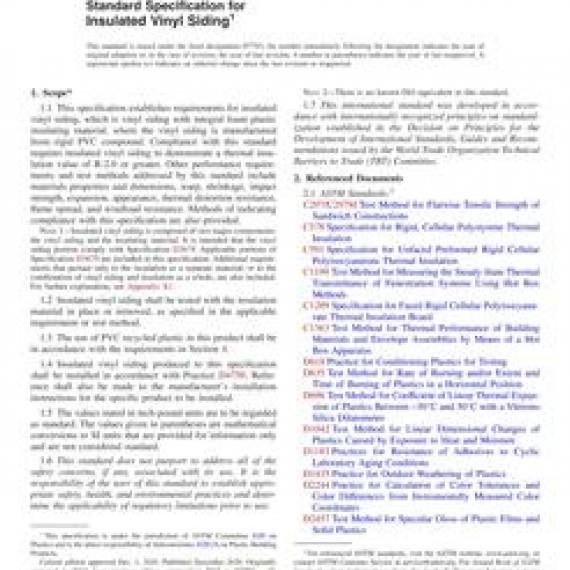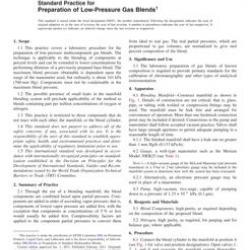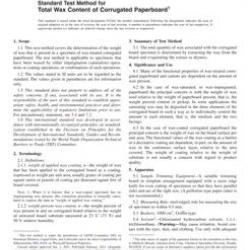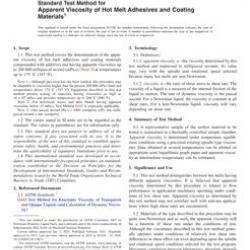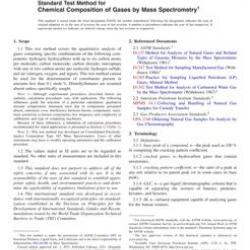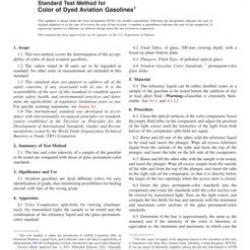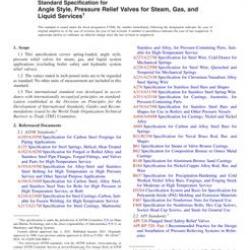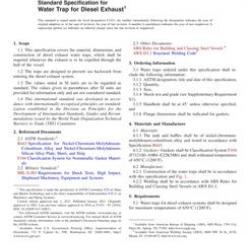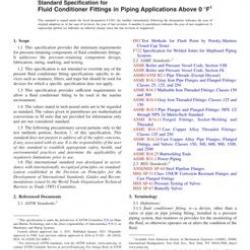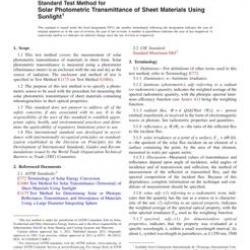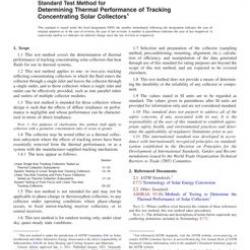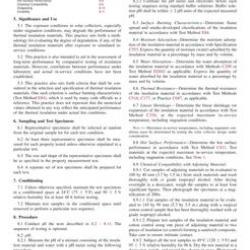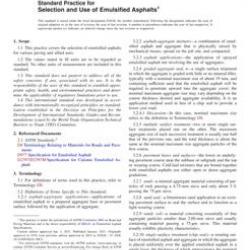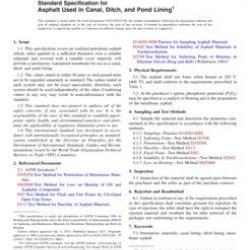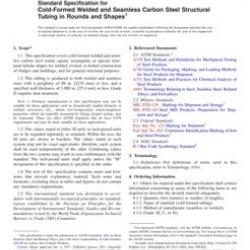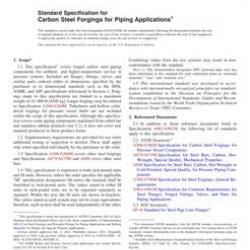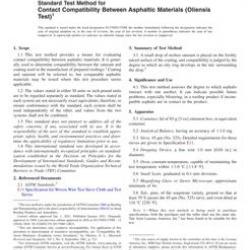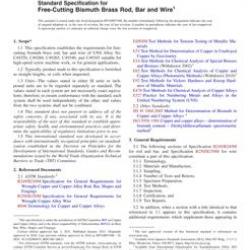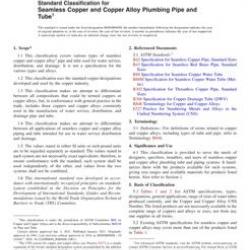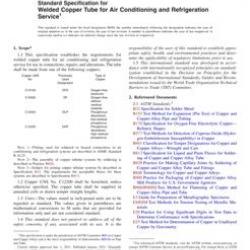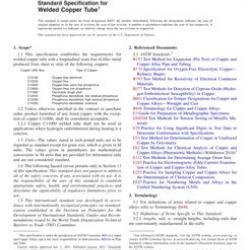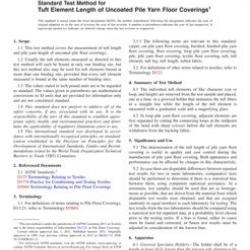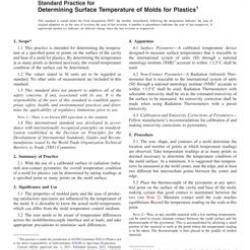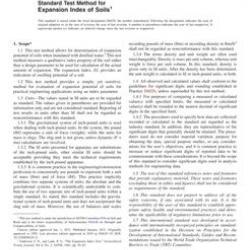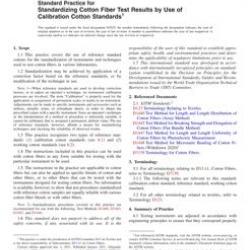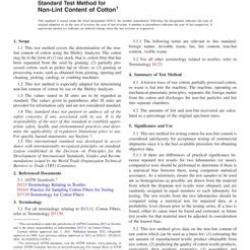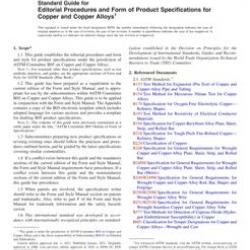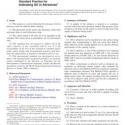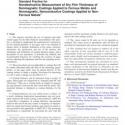No products
ASTM D7793-20
ASTM D7793-20 Standard Specification for Insulated Vinyl Siding
standard by ASTM International, 12/01/2020
Full Description
1.1''This specification establishes requirements for insulated vinyl siding, which is vinyl siding with integral foam plastic insulating material, where the vinyl siding is manufactured from rigid PVC compound. Compliance with this standard requires insulated vinyl siding to demonstrate a thermal insulation value of R-2.0 or greater. Other performance requirements and test methods addressed by this standard include materials properties and dimensions, warp, shrinkage, impact strength, expansion, appearance, thermal distortion resistance, flame spread, and windload resistance. Methods of indicating compliance with this specification are also provided.
Note 1:''Insulated vinyl siding is composed of two major components: the vinyl siding and the insulating material. It is intended that the vinyl siding portion comply with Specification D3679. Applicable portions of Specification D3679 are included in this specification. Additional requirements that pertain only to the insulation as a separate material, or to the combination of vinyl siding and insulation as a whole, are also included. For further explanation, see Appendix X1.
1.2''Insulated vinyl siding shall be tested with the insulation material in place or removed, as specified in the applicable requirement or test method.
1.3''The use of PVC recycled plastic in this product shall be in accordance with the requirements in Section '''4.
1.4''Insulated vinyl siding produced to this specification shall be installed in accordance with Practice D4756. Reference shall also be made to the manufacturer's installation instructions for the specific product to be installed.
1.5''The values stated in inch-pound units are to be regarded as standard. The values given in parentheses are mathematical conversions to SI units that are provided for information only and are not considered standard.
1.6''This standard does not purport to address all of the safety concerns, if any, associated with its use. It is the responsibility of the user of this standard to establish appropriate safety, health, and environmental practices and determine the applicability of regulatory limitations prior to use.
Note 2:''There is no known ISO equivalent to this standard.
1.7''This international standard was developed in accordance with internationally recognized principles on standardization established in the Decision on Principles for the Development of International Standards, Guides and Recommendations issued by the World Trade Organization Technical Barriers to Trade (TBT) Committee.

